Industrial Infrastructure – Afco Steel
Premium Structural Steel for Stronger Foundations
Durable. Customizable. Delivered on Time.
Introduction to Industrial Infrastructure
Afco Steel is one of the renowned steel manufacturers in Saudi Arabia, spearheading the development of industrial infrastructure solutions like warehouses, bulk storage silos, and water storage tanks. Backed by world-class structure fabrication, site-certified quality assurance, and timely delivery, we assist industries in erecting safer, stronger, and future-ready facilities.
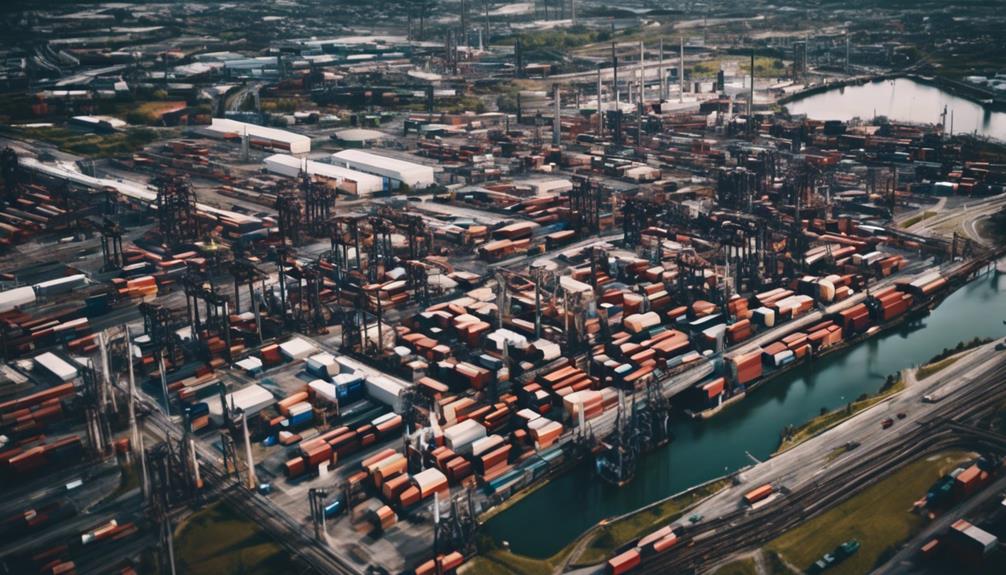
Industrial infrastructure, like steel structures, guarantees safety and efficiency in industrial settings. Transportation networks and energy sources play crucial roles in connecting zones and powering operations. Utilities and steel components are indispensable for functionality and longevity. Innovations such as smart technology and renewable energy are shaping the future. Challenges like labor shortages and regulatory demands require strategic solutions for progress. Green practices and automation are key trends driving sustainability and productivity.
Importance of Industrial Infrastructure
The foundation of any economy is built on industries and industrial infrastructure. Every project—from huge warehouses to specialty storage tanks—needs structural steel that can hold up in any environment. Industrial infrastructure serves as the backbone of industrial growth and operations, providing the necessary facilities to support various sectors and promote economic development.
Steel infrastructure for factories is a critical component, ensuring structural integrity and longevity. Companies specializing in industrial infrastructure play an essential role in designing, constructing, and maintaining these steel structures to meet the specific needs of factories and industrial plants.
Afco Steel integrates high-end steel fabrication work with engineering expertise to offer infrastructural longevity that lasts for decades. As one of the most trusted steel factories in Saudi Arabia, we design, fabricate, and erect steel structures that suit client specifications in the oil & gas, manufacturing, logistics, energy, and construction sectors.
Our Steel Offerings
What types of industrial steel solutions do we provide?
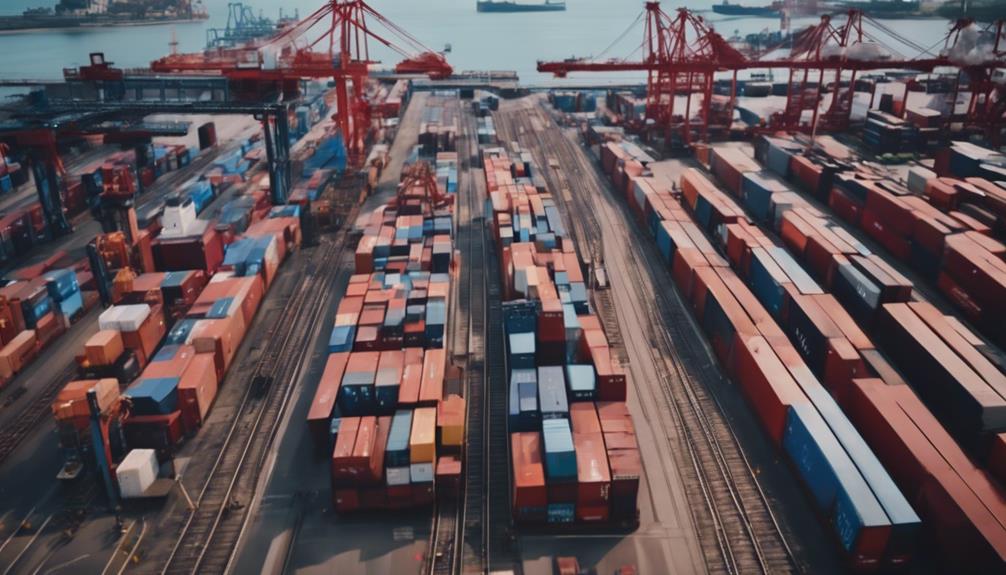
Afco Steel has a diverse range of structural fabrication services that fulfill the need of any industry:
- Industrial buildings & factories — Heavyweight structures for long-span manufacturing facilities.
- Warehouses & logistics hubs — Quick, scalable warehouses built on optimized steel structures
- Steel water storage tanks — Durable, economical, high-volume water storage solutions.
- Bulk storage silos — Industrial silos for cement, grains, and bulk materials.
- Oil & gas infrastructure — Structural steel for plants, terminals, and pipelines.
- Power & energy plants — Heavy steel fabrication for refineries and energy facilities.
- Bridges & heavy frameworks — Structural steel for transport & civil projects with high load capacity.
- Custom sheet metal fabrication — Tailor-made stainless steel and sheet-metal fabricator services.
Incorporating steel as a foundational material in industrial infrastructure underscores durability and reliability. Steel handrails, grating walkways, and outdoor platforms enhance safety and corrosion resistance. Its quick assembly, recyclability, and cost-effectiveness make steel the preferred choice in industrial construction.
Afco Steel ensures that every product—whether steel sheet, stainless steel fabrication, or heavy-duty structural erection—is manufactured to comply with Saudi and international standards.
Key Components of Industrial Infrastructure
In the domain of industrial development, the foundation of progress lies in the intricate network of key components that constitute the backbone of industrial infrastructure. Steel platforms, support structures, and access systems like stairways and walkways are essential elements that guarantee safety, functionality, and longevity.
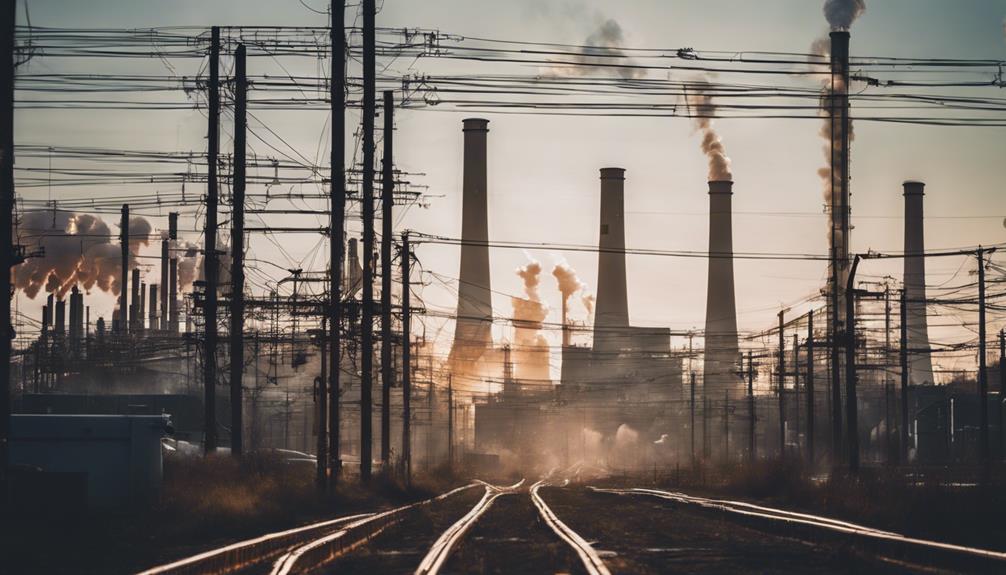
Steel infrastructure plays a crucial role in the oil and gas industry—supporting refineries, pipelines, and offshore platforms—and is also fundamental in energy facilities, power plants, and manufacturing hubs.
Efficient transportation and utility systems are equally vital:
Role of Transportation
Transportation networks within industrial zones support the smooth flow of raw materials and finished products. Steel infrastructure forms the basis of warehouses, distribution centers, and roads, enabling efficient logistics operations.
Modern transportation solutions such as smart highways, GPS tracking, and intermodal terminals enhance delivery times, cut costs, and improve competitiveness.
Impact of Utilities
Utilities like power supply systems, effluent treatment plants, and water networks are indispensable in maintaining industrial operations. Efficient waste management and utility infrastructure ensure seamless plant functionality.
Reliable road systems within industrial parks further amplify utility effectiveness by supporting the movement of goods and materials.
Why Choose Afco Steel?
Why is Afco Steel the right partner for industrial infrastructure in Saudi Arabia?
Choosing the right steel construction company can make or break your project. Here’s what sets us apart:
- Demonstrated Experience – Clients across Saudi Arabia and international markets trust our work.
- Complete Solutions – We handle everything from design to on-site erection.
- Advanced Technology – CNC Okub machines, robotics, and 3D steel construction design.
- Full Compliance – Adherence to ISO, ASTM, and Saudi Building Codes.
- On-Time Delivery – Efficient logistics supported by open terrain cranes and truck-mounted cranes.
- Sustainability Focus – Our solutions meet Vision 2030 goals for green building.
- Trusted Steel Suppliers – One-stop source with full traceability and material property documentation.
We are more than just a steel factory—we are a partner in your industrial growth.
Our Process
How does our structural steel project process work?
Our approach ensures precision, safety, and on-time delivery:
- Consultation & Site Analysis – Understanding project scope and site conditions.
- Engineering & Design – Load calculations, SBC compliance, and detailed structural drawings.
- Fabrication – Cutting-edge fabrication of structural and stainless steel at our advanced facility.
- Quality Assurance – Full material traceability, tensile and impact strength testing.
- Deliver & Build – Experienced steel erectors and crane operators manage on-site assembly.
- Final Takeover – Third-party verified QA/QC documentation and final client sign-off.
Every step is focused on accuracy, durability, and compliance with regulatory standards.
Certifications & Quality Assurance
How do we guarantee reliability and safety?
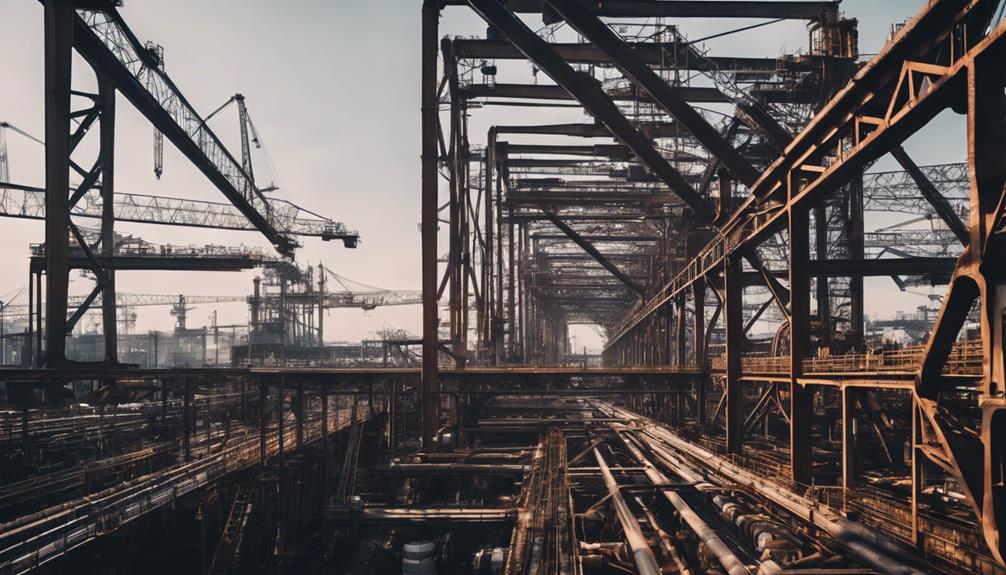
Afco Steel’s manufacturing and construction processes are backed by internationally recognized certifications:
- ISO, ASTM, and Saudi Building Code compliance.
- Full material traceability with supporting test reports.
- Rigorous performance testing: tensile, hardness, and impact.
- QA/QC systems validated by third-party inspections.
- Certified welding inspectors for structural steel projects.
When you choose Afco Steel, you choose certified quality.
Sustainable Practices in Industrial Infrastructure
Sustainability is a growing priority in industrial development. At Afco Steel, we align our offerings with Vision 2030 by implementing green practices such as:
- Use of recyclable steel materials.
- Integration of renewable energy (solar/wind) in design.
- Water and waste management technologies, including effluent treatment.
- Green infrastructure techniques (stormwater management, biodiversity support).
- Modular, prefabricated systems that reduce site waste and construction time.
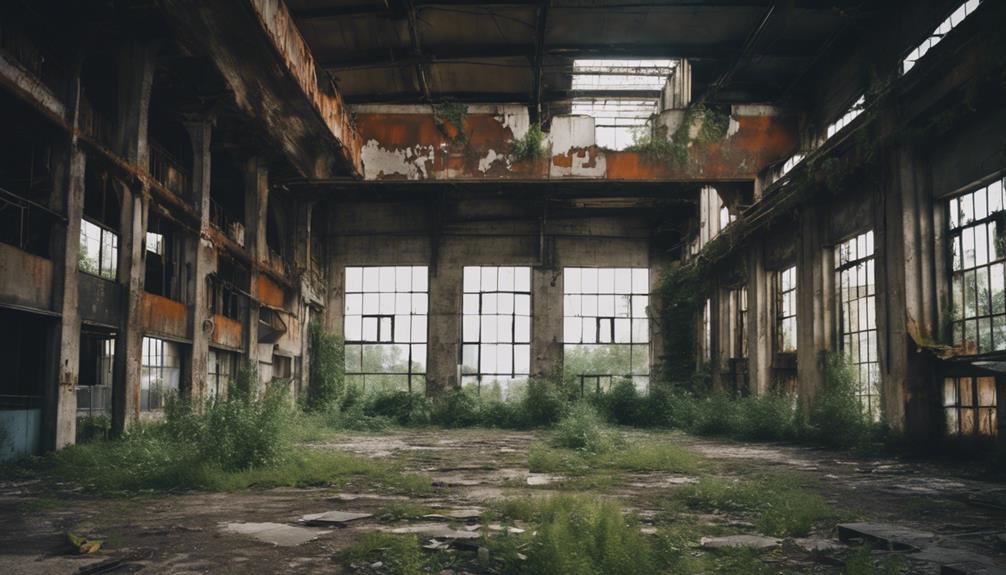
Durable materials like steel grating and stainless steel offer longevity and reduce replacement needs, supporting circular construction practices.
Innovations in Industrial Infrastructure
Modern industrial infrastructure is rapidly evolving through:
- Smart Technology – IoT-enabled systems for monitoring and process automation.
- Digital Twins – Real-time simulations and optimization of industrial processes.
- Advanced Robotics – Enhancing productivity and safety in construction and operations.
- Predictive Maintenance – Reducing downtime and improving cost efficiency.
- Custom Solutions – Stainless steel conveyors, modular walkways, and automation-compatible systems.
These innovations drive efficiency, improve safety, and reduce environmental impact.
Challenges Faced in Industrial Steel Structures
Despite advancements, the industry faces several obstacles:
- Skilled Labor Shortages – A growing gap in technical expertise delays project execution.
- Limited Funding – Capital constraints affect infrastructure expansion and upgrades.
- Coordination Issues – Misalignment between stakeholders can cause delays.
- Regulatory Pressures – Meeting evolving standards requires time and resources.
- Technology Integration – Traditional setups struggle to adapt to new innovations.
Partnering with experienced steel manufacturers ensures access to qualified labor, compliant materials, and integrated digital systems.
Future Trends in Industrial Infrastructure
Looking ahead, the industrial infrastructure landscape is transforming through:
- Green Building Practices – Energy-efficient designs and renewable power integration.
- Modular Construction – Faster timelines and reduced material waste.
- Industrial Automation – AI, robotics, and smart monitoring systems.
- IT Integration – Enhanced connectivity, cybersecurity, and data management.
- Collaborative Ecosystems – Joint ventures between construction, technology, and utility providers.
Steel remains a cornerstone of industrial development due to its unmatched strength, flexibility, and sustainability.
Frequently Asked Questions on Industrial Infrastructure
What is Meant by Industrial Infrastructure?
The term ‘industrial infrastructure’ typically refers to the essential facilities and systems supporting industrial activities. These can encompass power distribution, water supply, waste management, and other necessary services important for industrial operations and development.
What are the 4 Types of Infrastructure?
The four types of infrastructure are transportation, energy, communication, and water. Transportation includes roads and airports to facilitate movement. Energy involves power plants for reliable electricity. Communication comprises telecommunications and internet networks. Water infrastructure guarantees a clean water supply.
What is the Difference Between Infrastructure and Industrials?
The difference between infrastructure and industrials lies in their focus – infrastructure encompasses public services for societal functioning, while industrials are involved in tangible goods production. Diversifying across sectors is essential for investors seeking balanced portfolios.
What Do You Mean by Infrastructure?
Infrastructure refers to the essential physical structures and facilities required for the functioning of a society or industry. It encompasses roads, bridges, water supply systems, power lines, and communication networks, crucial for economic development and societal progress.
What types of industrial infrastructure services does AFCO Steel offer in Saudi Arabia?
AFCO Steel offers a wide range of services including structural steel fabrication and erection, steel buildings, pipe racks, platforms, warehouses, production halls, and utility structures for industrial zones and manufacturing plants.
How does AFCO Steel ensure durability and compliance in industrial construction projects in Jeddah?
We follow Saudi Building Codes (SBC), international engineering standards (such as AISC and ISO), and conduct rigorous quality control throughout design, fabrication, and installation. All materials are selected for environmental conditions.
Can AFCO Steel handle large-scale industrial infrastructure developments in the KSA region?
Yes, AFCO Steel has the capacity, manpower, and technical expertise to manage large-scale industrial infrastructure projects across Saudi Arabia, including multi-phase developments and EPC (Engineering, Procurement, and Construction) contracts.
What materials and technologies are used in your industrial steel infrastructure solutions?
We use high-grade structural steel, alloy steel, and galvanized steel components, supported by technologies like 3D modeling, CNC fabrication, BIM coordination, and automated welding for precision and performance.
How long does it typically take to complete an industrial infrastructure project in Saudi Arabia?
Timelines vary based on project size and scope, but typical industrial builds range from 3 to 12 months, including design, approvals, fabrication, and erection phases.
Is AFCO Steel certified for industrial infrastructure development in accordance with Saudi standards?
Yes, AFCO Steel is fully certified and approved by relevant Saudi authorities. We operate in compliance with SBC, ISO, and industry-specific safety, environmental, and structural standards.
What industries benefit most from AFCO Steel’s industrial infrastructure services in Jeddah and beyond?
Our services support industries such as oil & gas, petrochemicals, logistics, food processing, manufacturing, power & energy, and industrial warehousing across the Kingdom.
How can I request a quote or consultation for an industrial infrastructure project in KSA?
You can request a consultation by visiting our Contact Page, calling our office, or submitting your project details through our online form. Our team will respond with a tailored proposal.
Does AFCO Steel offer custom design and engineering for industrial facilities in Saudi Arabia?
Yes, we provide fully customized engineering solutions, including structural design, load analysis, and detailing to meet the specific operational and spatial requirements of your industrial facility.
What makes AFCO Steel a trusted choice for industrial infrastructure projects across the Kingdom?
Our reputation is built on proven reliability, engineering excellence, strict quality control, and deep knowledge of local market needs. We deliver turnkey solutions that meet deadlines, budget goals, and regulatory requirements.
What is structural steel used for in industrial infrastructure?
Structural steel is used to build warehouses, factories, bridges, storage tanks, and bulk storage silos in Saudi Arabia.
Why choose steel over concrete for warehouses?
Steel allows faster construction, longer spans, and higher durability — making it the preferred choice for warehouse construction.
Do you provide logistics and installation?
Yes. Our steel erectors, rough terrain cranes, and truck mounted cranes ensure safe delivery and installation support.
Are Afco Steel’s products certified?
Absolutely. Every structure follows ISO, ASTM, and Saudi Building Codes with third-party verification.
How can I get a steel water storage tank price or quote?
You can request a free quote through our website or contact our sales team directly for project-specific pricing.
